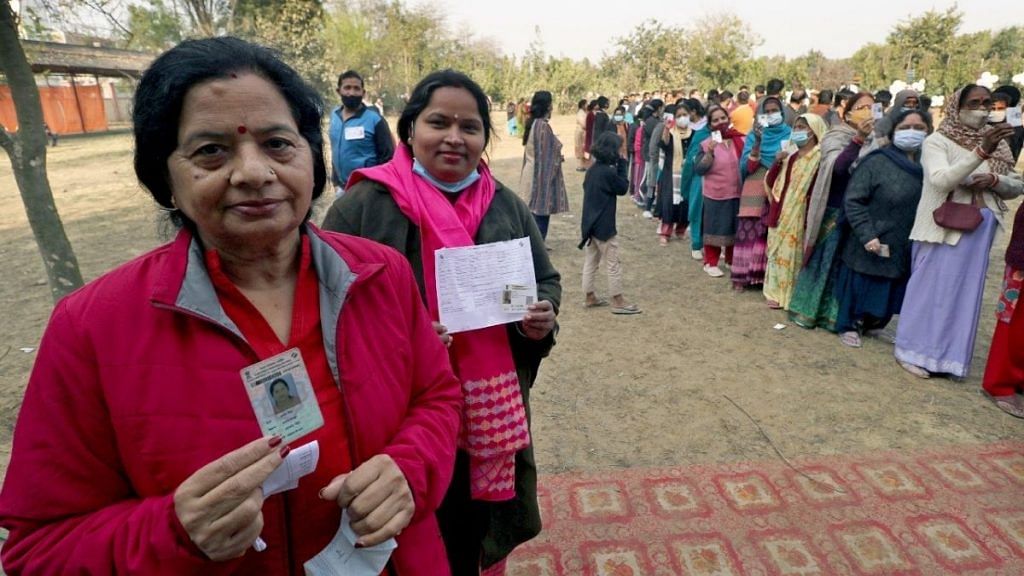When I was in school, we had a subject called Civics that taught us about the functioning of India’s constitutional and political framework. We were taught about the election process and how to vote for our preferred candidate. The criterion for selecting the finest representative was whether or not the person works or intends to work for the place’s growth. While this ideal was a part of the school curriculum, the truth is often far from the principle.
Recently, I took my younger cousin to a barber who has a little thela in my colony. The barber is from Uttar Pradesh and belongs to an oppressed caste. While I waited for the haircut, a Bengali Muslim labourer also came in. He was from a village near Kolkata. The conversation began when I asked the barber about the recent elections in Uttar Pradesh. He responded, “Ab kya hi bolu?” (What do I even say?)
He had returned to Mumbai after two years and found it impossible to thrive here because of the lockdown. He had to apply for a Rs 1 lakh loan for his children’s education and other tasks, which he is still paying back. The UP government offered rations to the family throughout the lockdown. So I inquired who he voted for this time. He responded that he voted for the BJP. I was perplexed and inquired if he was pleased or disappointed with the government’s performance. So he said that it’s just not as straightforward as it seems since the opposing party has a long history of mistreating Dalits. So, there’s no one else to vote for.
The Muslim Bengali labourer standing there said, “This is the same situation in Bengal. I am from a village where you can’t make a living off of agricultural land, therefore you have to look for work elsewhere.” The economic situation is dire, and he and his family have encountered numerous challenges owing to communal issues. He has lost many village members as a result of the Trinamool Congress’ onslaught, but he continues to vote for the same party because he is afraid that if they don’t, they would be attacked. Since the opposition party has no place for the Muslim community, voting for the Trinamool Congress seems like the best option.
Vote for whom?
Throughout the discussion, I was astounded by the country’s current voting tendency. Is that what a country should do? We don’t vote for who is the best and most qualified candidate for developing the region. Instead, we vote for who is the least bad in comparison. This reality is widely acknowledged by people across India, but no one has ever attempted to address the problem that marginalised groups face. Politicians seek power so they may cause havoc, disrupt their constituents’ lives, or just bribe them, but is this how India’s elections should be viewed?
Right, liberal, Hindutva, communist, and socialist philosophies are all represented in Indian politics. This is an emotive method of gaining votes. In the sphere of journalism, the same scenario is evident, with different media platforms following different ideologies and failing to focus on honest and genuine content. Liberals, on the other hand, are increasingly emphasising on government shortcomings while ignoring the real issue of marginalised and minority groups in the country, resulting in increased sympathy for thegovernment.
The journalism practised by the media differs significantly from what our Constitution mandates. Minorities are in jeopardy now, and the marginalised are afraid. I have the privilege of voting for the candidate I want as my representative, but is this the case in other parts of the country, particularly underdeveloped states? Are we confident in the country’s political system? Isn’t it our duty to help each other feel safe and secure, to share a sense of solidarity, and to follow in the footsteps of the great freedom fighters? Why can’t we join together to solve our country’s problems if our freedom fighters of different ideologies can come together for our country?
The author is a student at Sophia College for Women, Mumbai. views are personal
